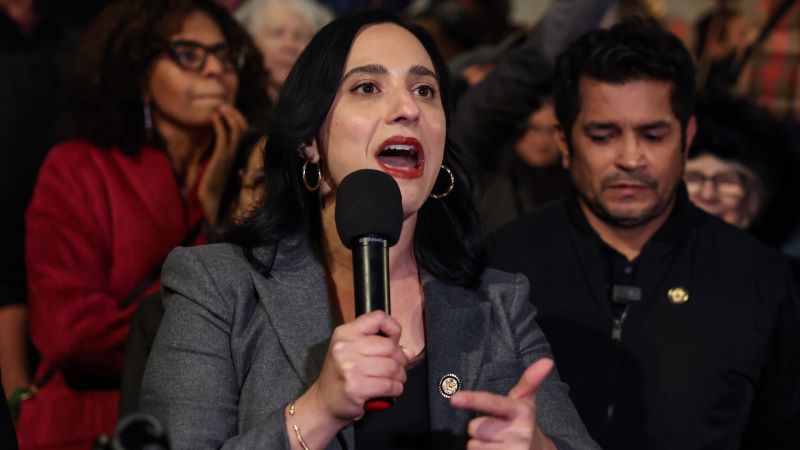Rep. Yassamin Ansari (D-Arizona), an Iranian-American lawmaker, has raised alarms over a noticeable increase in the detention of Iranian nationals by U.S. Immigration and Customs Enforcement (ICE). This surge has not only triggered a wave of online backlash but has also intensified scrutiny on the role of national security in immigration enforcement.
The increase in detentions comes amidst heightened geopolitical tensions and ongoing debates about immigration policies in the United States. Rep. Ansari, who has been a vocal advocate for immigrant rights, expressed her concerns about the potential implications of these detentions on both the Iranian-American community and broader U.S. immigration practices.
Background and Context
The detentions of Iranian nationals by ICE have been part of a broader pattern of increased immigration enforcement actions that have been justified on national security grounds. Historically, the U.S. has seen fluctuations in immigration enforcement intensity, often correlating with international relations and domestic security concerns.
According to data from the Department of Homeland Security, there has been a marked increase in the number of Iranian nationals detained over the past year. This uptick coincides with a period of strained relations between the U.S. and Iran, exacerbated by diplomatic conflicts and economic sanctions.
Impact on the Iranian-American Community
The Iranian-American community, which numbers over one million in the United States, has been particularly sensitive to these developments. Many community leaders and organizations have voiced their concerns about the potential for racial profiling and the erosion of trust between immigrant communities and law enforcement agencies.
Rep. Ansari emphasized the need for transparency and accountability in immigration enforcement practices. “We must ensure that our national security measures do not undermine the rights and freedoms of individuals based on their nationality or ethnicity,” she stated in a recent interview.
Expert Opinions and Reactions
Experts in immigration law and national security have weighed in on the issue, offering varied perspectives. Some argue that the increased detentions are a necessary measure to protect national security, while others believe they are an overreach that could lead to civil liberties violations.
Dr. Emily Chen, a professor of immigration law, noted, “While national security is paramount, it is crucial that enforcement actions are conducted with due process and respect for human rights. Blanket policies based on nationality can lead to unjust outcomes and fuel xenophobia.”
“The surge in detentions is concerning and requires a balanced approach that safeguards both security and civil liberties.” – Dr. Emily Chen
Historical Parallels and Future Implications
This situation is reminiscent of past instances where national security concerns have led to increased scrutiny of specific immigrant groups. Notably, the post-9/11 era saw similar patterns, with heightened security measures impacting Middle Eastern and South Asian communities.
Looking ahead, the implications of these detentions could be significant. They may influence future immigration policy discussions and impact the U.S.’s diplomatic relations with Iran. Moreover, they could affect the political landscape, particularly in states with large immigrant populations.
As the debate continues, Rep. Ansari and other advocates are calling for comprehensive immigration reform that balances security needs with the protection of individual rights. The outcome of this debate will likely shape the future of U.S. immigration policy and its approach to national security.
In conclusion, the recent uptick in ICE detentions of Iranian nationals has sparked a complex debate that touches on national security, civil liberties, and the broader immigrant experience in America. As policymakers and advocates grapple with these issues, the need for a nuanced and informed approach becomes increasingly evident.
